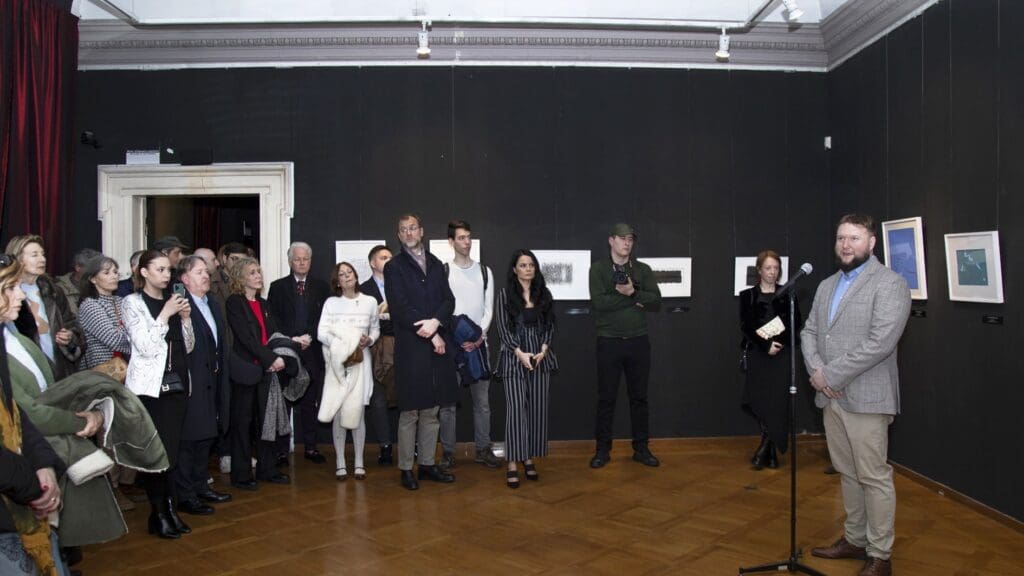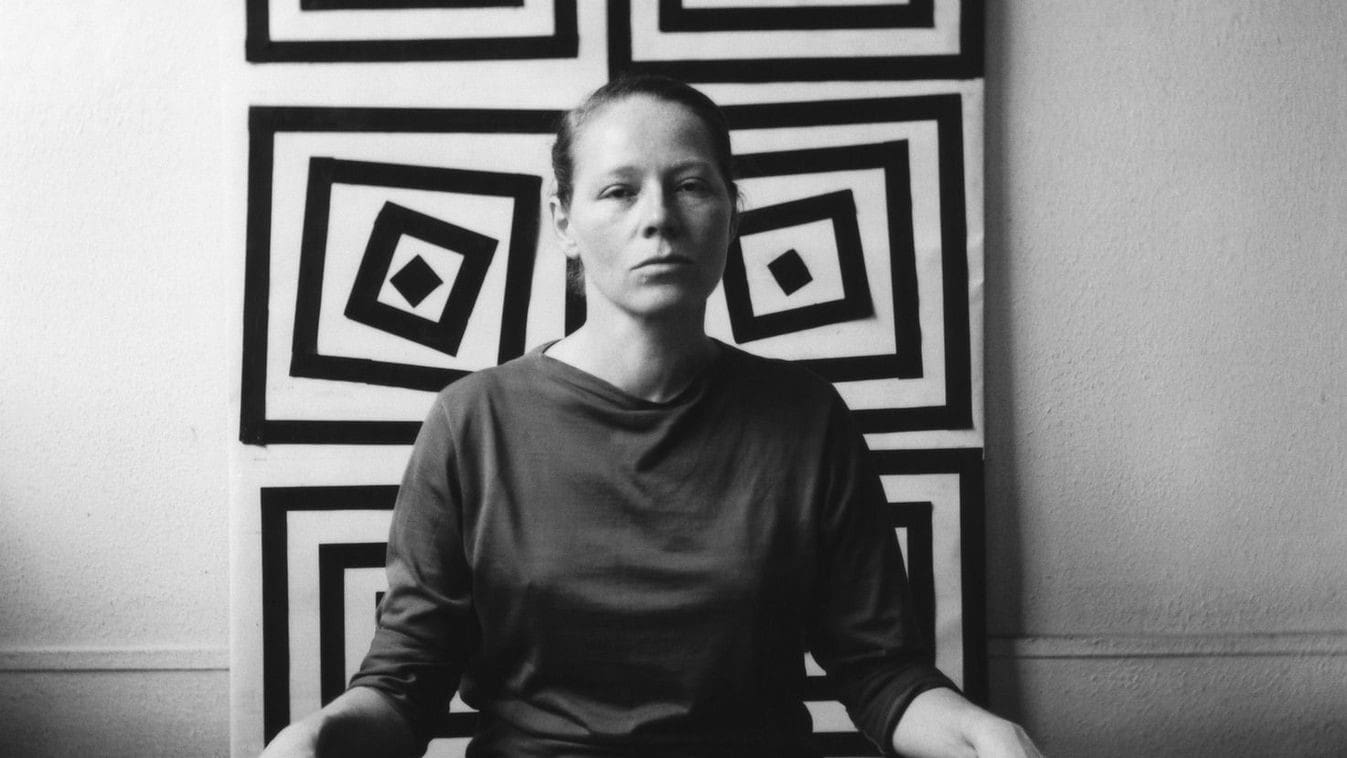Vera Molnar’s exhibition titled Variazioni Icone in the Falconieri Palace in Rome has attracted significant interest, according to Máté Vincze, Deputy State Secretary responsible for public collections and cultural developments at the Ministry of Culture and Innovation (KIM).
Speaking from Rome on Friday Máté Vincze emphasized that the exhibition opened last November showcasing the work of Hungarian-born computer artist Vera Molnar, who passed away in December 2023 at the age of 99, has drawn approximately four thousand visitors over the past months, making it one of the most successful exhibitions at the Hungarian Academy in Rome in recent times. ‘This exhibition is Hungary’s homage to the artist,’ expressed the Deputy State Secretary, adding that the exhibition occupying three rooms in the Falconieri Palace primarily appealed to the Roman community interested in contemporary arts.
He underscored that Vera Molnar was a pioneer of computer art, beginning her engagement with it in the 1960s. ‘In geometric art, she always sought what lends that one per cent of humanity that makes computer art humane,’ he said. This philosophy is particularly relevant in today’s world when artificial intelligence surrounds us entirely and many fear it will take over the work of artists, the deputy state secretary remarked.

In terms of the venue of the exhibition, Vincze stressed that the network formed by the 26 Hungarian cultural institutes operating in 24 countries worldwide is exceptionally robust, and recalled that the first foreign cultural institutes, referred to as ‘academies’, including the one in Rome, were established before WWII during the tenure of Minister of Education Kuno Klebelsberg. ‘After about a century, it can be stated that this institutional network has achieved its goal,’ highlighted the Deputy State Secretary, adding that Hungarian cultural diplomacy is particularly successful.
According to the press release of the Hungarian Academy in Rome, the exhibition remains open until Sunday. The artworks displayed, sourced from the Szöllősi-Nagy-Nemes Collection, the Offenbacher Ferenc Collection, The Mayor Gallery in London, and the New Murano Gallery in Venice, are presented not in chronological order but thematically, allowing visitors to appreciate them in a thematic context.
Vera Molnar (1924-2023) was a Hungarian-born French media artist and a pioneer of computer art who studied art history and aesthetics at the Budapest College of Fine Arts. In 1947 she received a scholarship to study in Rome, and later settled in Paris. She created her first non-figurative, abstract works in 1946. From 1959 she generated images based on combinatorial principles. In 1968 she began working with computers, creating algorithmic paintings based on simple geometric shapes and themes.
She was a founder and lecturer at the Centre de Recherche Experimental et Informatique des Arts Visuels (University of Paris). Her works were widely collected by major museums. In July 2023 one of her collections fetched $1.2 million (approximately 415 million forints) at a Sotheby’s auction. In 2005 she received the DAM Digital Arts Award for her life’s work, and in 2012 she was awarded the French Order of Merit. In 2018 she won the AWARE Prize recognizing outstanding female artists.
Read more:
Sources: Hungarian Conservative/MTI







